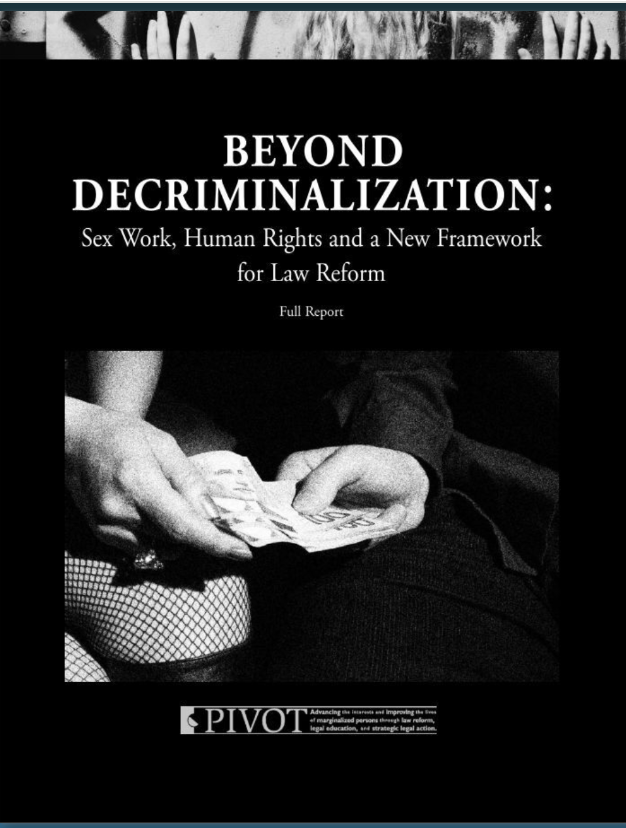The report presents a wide-ranging list of recommendations proposed by sex workers in the course of this research. The following selection illustrates some key aspects of sexworkers’ call to action:
- Provide sex workers with full access to the rights and protections found in the Employment Standards Act, and ensure the legislation explicitly protects an individual sexworker’s decision to provide sexual services and maintain control over her or his contract for the provision of sexual services.
- Respect the right of sex workers to unionize and provide resources and support to them throughout the process.
- Involve sex workers in a meaningful way in municipal governance issues, such as business licensing and city zoning, in order to meet the diverse needs of sex workers from various aspects of the industry as well as the interests of communities.
- Respect the right of sex workers to have fair and equal access to Workers’ Compensation, Employment Insurance as well as other employment benefits.
- Enact a provision in all relevant legislation to ensure that refusal to work in the sex industry does not affect a person’s entitlements to Employment Insurance or Income Assistance.
- Ensure the freedom of sex workers to choose from a range of business structures.
- Ensure that income earned through sex work is subject to fair and non-discriminatory taxation and that sex workers are not retroactively taxed once their work becomes recognized as a legal activity.
- Recognize that a parent’s involvement in sex work does not automatically create grounds for the apprehension of a child or loss of custody, and take steps to ensure that sex workers are not subject to discrimination by the Courts or government in family law matters.
- Ensure the right of sex workers to access the human rights complaint process and equal opportunities for social citizenship.
- Ensure that migrant sex workers are afforded the rights and protections found in the Canadian Charter of Rights and Freedoms.
This report is the beginning of an important social dialogue about the role that the law will play in governing the sex industry in Canada. Pivot has argued that criminal law reform is the first step towards a shift from the status quo,where sex workers are subject to extreme levels of violence and social marginalization, to a society where sex workers areempowered to create safe and dignified working conditions. Criminal law reform will be most effectively carried out if alllevels of government consider the findings of this research and contemplate how areas of law that fall within their jurisdiction will play a role in creating a safe and legitimate sex industry.
This report also illustrates why sex workers must be provided with a prominent role in the process of law, policy and social reform. Sex workers have a unique insight and expertise regarding their industry, the role it plays in Canadian society, and the ways in which regulatory schemes will impact their business. Above all, law and policy makers should listen to sex workers in order to understand how the laws affect them. This is a necessary step in ensuring that Canada’s laws comply with the guarantees and protections enshrined in the Charter and other human rights instruments.
